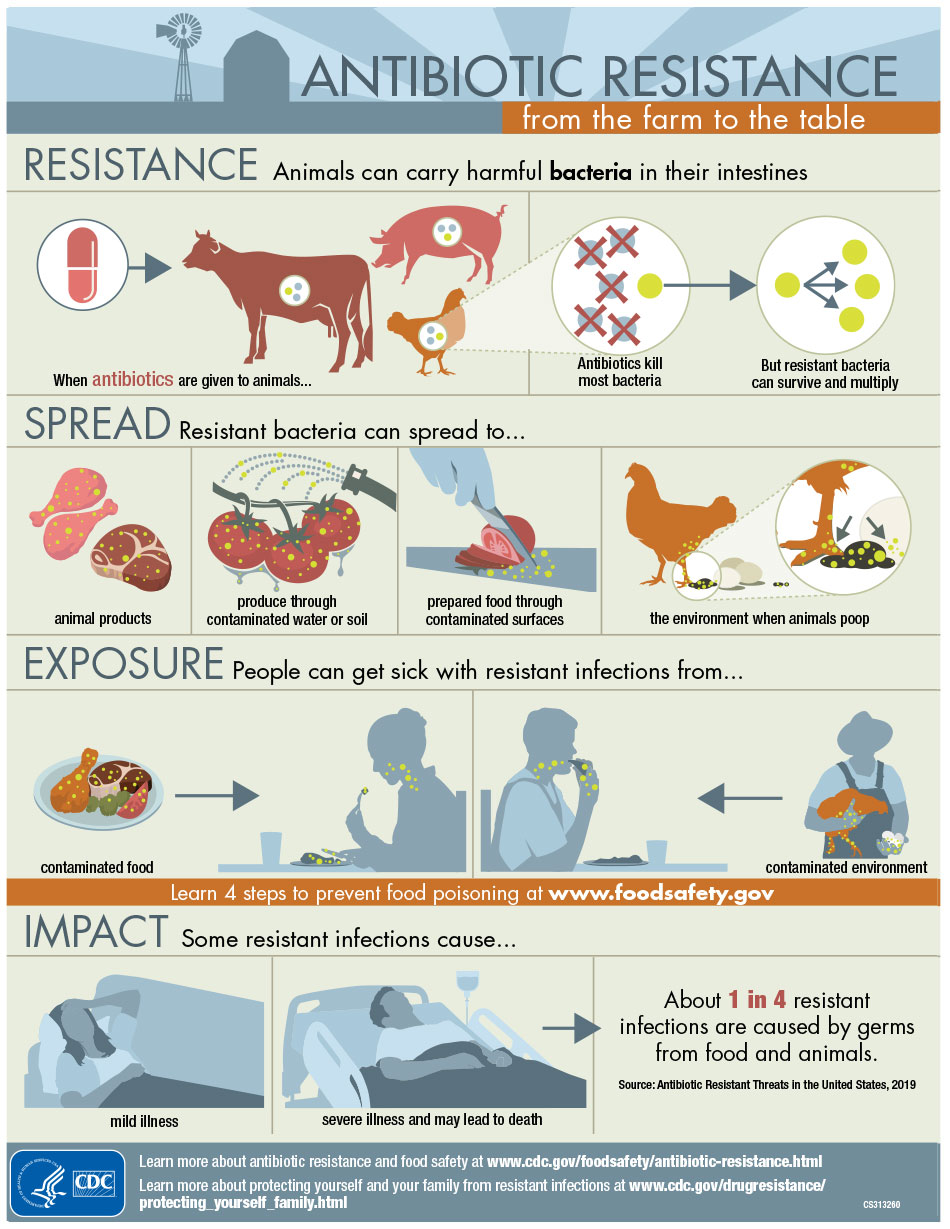|
Discendo Vox posted:Exactly. This is what makes the calculus so obvious and frustrating- that and that people are rejecting an obvious centuries-old safety procedure. Cooking fish is known to make fish safe to eat, yet people still eat sushi. Discendo Vox posted:The situation is highly comparable to vaccine denial-people are free riding and increasing risk of harm to both themselves and others. The difference is that with vaccines, people at least do it out of an (unfounded) fear of (infinitesimal) risk of harm. Raw dairy people want to eat slightly different-tasting cheese. Discendo Vox posted:Again, the EU has massive, massive regulatory capture by regional food producers, that lets them set up near-absolute market identity control on different food types.
|
|
|
|

|
| # ? May 23, 2024 13:32 |
|
SubG posted:In which case we find that raw milk is about 0.02% of the problem. I suppose we could fudge the numbers by assuming that the 22 hospital cases related to raw milk are intrinsically more serious than the 128,000 all-cause cases, but clearly we have to really, really, really lean on those pesky numbers to make them look relevant in terms of the rise of resistant bacteria, compared to just all the other causes of foodborne illness. Dairy products are viewed as an especially vulnerable location for antibiotic resistant bacteria because farm animals (especially cows, cattle and pigs) have been identified as one of the main sources of antibiotic resistant bacteria, and because the meat processing parts of the food safety system, under USDA, have a much more comprehensive oversight and tracking regime. At this point, we know that strains of resistant bacteria are in US farms in some areas (a colistin-resistant e. coli infection occurred in May for example; it's believed to have come from pigs, although the farm couldn't be identified)- changing consumer behavior is the main line of defense that we have remaining. Also, here's the calculation of multipliers to compensate for underreporting from the cited study. For the relevant pathogens(5 others were really rare and had limited data), the output of the different models they used ranged from 30 to 60, with a final value of 25.6 chosen. rgocs posted:When compared to the 7 millennia of cheese making, 200 years of pasteurization seems quite small. rgocs posted:
rgocs posted:So you're saying that a system does exist where raw-milk cheese can be controlled for safety. The US/FDA is just not capable of it and would rather go for banning it. Got it. DekeThornton posted:Well, the selective breeding program would need all the hotness it can find. They could also just get really hot periodically, especially in the presence of the elderly, infants, and the immunocompromised. 
|
|
|
|
Discendo Vox posted:Exactly. This is what makes the calculus so obvious and frustrating- that and that people are rejecting an obvious centuries-old safety procedure. The situation is highly comparable to vaccine denial-people are free riding and increasing risk of harm to both themselves and others. The difference is that with vaccines, people at least do it out of an (unfounded) fear of (infinitesimal) risk of harm. Raw dairy people want to eat slightly different-tasting cheese. Discendo Vox posted:Vaccine deniers, however incorrect, at least make their decision on the basis of some delusional perceived risk. Unpasteurized dairy consumers rationalize their behavior, at a cost to society and those around them, because they like the taste. Okay, kid, you had a good run. But now you've gone a little too far off the deep end. So here's a little mini-mod challenge. You will either: 1. Somehow illustrate how virulent, airborne pathogens are not functionally more dangerous in a public setting than non-airborne, food-borne pathogens; OR 2. Realize your error, retract that line of statement, and admit that it was a stupid and hyperbolic thing to say; OR 3. As a way of defusing the situation you've gotten yourself into without admitting guilt, you may purchase and consume, on camera, no less than one kilogram of unpasteurized cheese. Since you're in the US this is completely safe; we don't get the good stuff. But at least it will support the good cheese producers you've been maligning so energetically. If you fail to do one of those three things in the next twenty-four hours, you will receive the most spectacular and embarrassing custom title/avatar combination that I or another member of these forums can produce.
|
|
|
|
I'm curious the stats for problems with AB resistant bacteria between the USA and France
|
|
|
|
|
Discendo Vox posted:You're still ignoring relative rates of use and ease of prevention. Raw totals aren't a valid measure, as has previously been pointed out. Again, if you want to dig up some numbers that suggest that those 0.02% of cases are more likely to be treated with antibiotics, involve conditions which are particularly conducive to the development of antibacterial resistance, or whatever then you might have an argument. But if you're trying to argue that a hunk of imported brie is a serious threat to public safety because it might lead to antibacterial resistance then, no, really you have to deal with the fact that treatment of illness resulting from consumption of contaminated imported brie is a vanishingly small loving fraction of the overall problem.
|
|
|
|
bartolimu posted:Okay, kid, you had a good run. But now you've gone a little too far off the deep end. So here's a little mini-mod challenge. Number 2. The situations are analogous in some ways, but the risk of the things we treat with vaccines are more serious than the relevant foodborne infections- my sincere apologies. SubG posted:No. The raw totals aren't relevant if we're trying to compare relative risk of individual consumption. But now you're trying to beat the drum of antibacterial resistance as an overall threat to public health. In which case the fact that raw milk usage only accounts for 0.02% of all hospitalisations due to foodborne illness is relevant. The public health policy argument is being made in a setting where the practice is already banned in interstate commerce, and where very few people do it. It's already recognized as a threat to public health, and a policy is already in place in that regard. That factor is relevant when considering its current share of the rate of hospitalizations. That 0.02% of all hospitalizations is in part the product of a current public health policy. Considering appropriate public health measures also involves the effects of possible actions. The remedy to this category of cases, pasteurization, causes no harm. The infections caused by unpasteurized dairy are wholly preventable. That's what makes the dismissal of it so frustrating. On the subject of the role of antibiotic resistance, the bacteria involved are more likely to already be in the animals. The bacteria already exist, and are primarily traced back to farm animals-that's the root source of them, primarily (it's believed) carried over from China. The consumption of unpasteurized dairy is the most likely vector for an outbreak of antibiotic resistant bacteria. As a sidenote, the colistin-resistant strain of e coli developed its resistance through plasmid transfer. The short version is that this lets the resistance transfer to other unrelated bacteria. That is bad. It means that if it infects an individual sick with another disease, there is a risk that that disease will also become antibiotic-resistant (the nightmare scenario is TB). Discendo Vox fucked around with this message at 02:58 on Aug 24, 2016 |
|
|
|
I didn't poo poo my pants! Neither did the dog, whom I gave a very generous crust too. Also, I started using Waze and it rules for finding random little bbq joints. Just set it to "avoid highways" and eat your way to where-ever you are going!
|
|
|
|
I think some of the things that maybe you guys aren't picking up on from Discendo's argument is that the consumption of raw milk products itself might make up a very small part of foodborne illness but it provides a direct vector of transmission of newly evolving antibiotic resistant bacteria that
|
|
|
|
|
Discendo Vox posted:They also might heavily restrict alfalfa sprouts. Nooooooo 
|
|
|
|
Discendo Vox posted:The remedy to this category of cases, pasteurization, causes no harm. The infections caused by unpasteurized dairy are wholly preventable. That's what makes the dismissal of it so frustrating. I don't think anybody here is suggesting that there should be no regulation of raw milk. And nobody here is trying to pretend that consumption of raw milk has no risk associated with it. Bart lamented not being able to get unpasteurised cheese imported from France. This lead you down a bunny trail where you're trying to argue big-picture public health. That's just equivocation. Bart getting his cheese from France doesn't entail eliminating pasteurised milk products, eliminating all regulation of raw milk products, or anything like that. The whole scope of the raw milk problem is small compared to the size of foodborne illness in general, and unpasteurised cheese is a small portion of that. Bart getting his cheese from France---and the general class of consumption of which it is an example---is just not plausible as a public safety boogyman. The fact that you don't care about the reasons why Bart might want to engage in his eating habits really isn't relevant, and the fact that you keep dismissing them is probably as frustrating for Bart as you find other people's willingness to accept the risks associated with engaging in eating behaviours that you find beep boop illogical. I mean if you just want to keep ranting about public saftey and food regulation and all that, more power to ya. But it isn't a responsive answer to any position taken by anybody in this thread. That Works posted:I think some of the things that maybe you guys aren't picking up on from Discendo's argument is that the consumption of raw milk products itself might make up a very small part of foodborne illness but it provides a direct vector of transmission of newly evolving antibiotic resistant bacteria that Again, if you're trying to evaluate the risks of a single act of consumption then the fact that raw milk products are more likely, on a use by use basis, to make you sick is relevant. But if you're trying to argue it as a public health issue you have to acknowledge the fact that the vast majority of cases of human illness---and therefore potential for outbreaks of resistant bacteria---come from other sources.
|
|
|
|
sweat poteto posted:Nooooooo They're not gonna, it's just that foodborne illness people tend to avoid alfalfa spouts because they're responsible for a ton of outbreaks. I don't know the plant well enough to know exactly why-apparently it's bacteria in the seed itself, and the distribution network is such that outbreaks tend to be unusually widespread.
|
|
|
|
bartolimu posted:Okay, kid, you had a good run. But now you've gone a little too far off the deep end. So here's a little mini-mod challenge. Awesome! Discendo Vox posted:Number 2. Oh... That's a bit disappointing, but understandable. bongwizzard posted:I didn't poo poo my pants! bongwizzard posted:Neither did the dog
|
|
|
|
That Works posted:I think some of the things that maybe you guys aren't picking up on from Discendo's argument is that the consumption of raw milk products itself might make up a very small part of foodborne illness but it provides a direct vector of transmission of newly evolving antibiotic resistant bacteria that I got this from his last post. What I then don't understand is that if raw-milk is the easiest way for antibiotic-resistance infection with the nightmare results that Discendo paints, why isn't it that the main argument of the FDA/CDC to ban it? I couldn't find any reference to that on their documentation. Maybe they should consider adding to their info-graphic:  Why isn't it listed in the FDA's dangers of raw-milk page: http://www.fda.gov/Food/FoodborneIllnessContaminants/BuyStoreServeSafeFood/ucm079516.htm Or in their long list of myths and dangers of raw-milk: http://www.fda.gov/Food/FoodborneIllnessContaminants/BuyStoreServeSafeFood/ucm247991.htm Which, ironically, only contains two references to antibiotic-resistance infections, and those were on pasteurized milk which, while caused by improper handling and contamination, still shows that blindly trusting pasteurization might not be enough.
|
|
|
|
Marta Velasquez posted:Oh... That's a bit disappointing, but understandable. I'm losing my touch, making the mod challenges too reasonable. Also Discendo Vox's for being, in the end, a reasonable (if utterly undiscerning when it comes to cheese flavor) adult.
|
|
|
|
rgocs posted:I got this from his last post. What I then don't understand is that if raw-milk is the easiest way for antibiotic-resistance infection with the nightmare results that Discendo paints, why isn't it that the main argument of the FDA/CDC to ban it? It's already banned federally. Individual states have legalized it intrastate, and people illegally transport it across state lines (when severe, those cases are the easy-to-identify ones). CDC and FDA (especially FDA) are generally uncomfortable pointing this state law issue out for legal reasons. quote:I couldn't find any reference to that on their documentation. Maybe they should consider adding to their info-graphic: It's on the first image under "animal products"- but note that it's generally not as much an issue with pasteurized dairy products. Few people actually consume unpasteurized dairy, so it doesn't get a separate mention on the chart. FDA material on pages like the first one are generally lay-facing and focus on individual risk, which has historically been more persuasive (also FDA is much worse at its public communication game than the CDC, again for legal reasons). They're not eager to try to face another free rider problem communication issue. Their vaccines page is comprehensive, thoughtful, informative, and took them like 5 years to develop. The latter page was last updated in 2011. I am not advocating blindly trusting pasteurization. It's one part of a generally safe food system, and it has no meaningful downsides. We should do it. SubG posted:Again, if you're trying to evaluate the risks of a single act of consumption then the fact that raw milk products are more likely, on a use by use basis, to make you sick is relevant. But if you're trying to argue it as a public health issue you have to acknowledge the fact that the vast majority of cases of human illness---and therefore potential for outbreaks of resistant bacteria---come from other sources. The vast majority of foodborne illness infections come from other sources because unpasteurized milk and most dairy products are already banned in interstate commerce. The rate is low because the policy is already partly in place. Recent increases in the outbreak of foodborne illness attributable to unpasteurized dairy are directly tied to states that legalized the internal sale of raw milk. Risk of outbreaks of resistant bacteria are not evenly distributed. Their root source is primarily in animal food products. We have better domestic monitoring for contamination for meats(USDA and industry are really good at this). bartolimu posted:I'm losing my touch, making the mod challenges too reasonable. Also Discendo Vox's for being, in the end, a reasonable (if utterly undiscerning when it comes to cheese flavor) adult. gently caress YOU DAD  (thank you for your mercy) (I'm going to see if I can do the cheese challenge anyways) Discendo Vox fucked around with this message at 04:08 on Aug 24, 2016 |
|
|
|
Discendo Vox posted:The vast majority of foodborne illness infections come from other sources because unpasteurized milk and most dairy products are already banned in interstate commerce. The rate is low because the policy is already partly in place. Recent increases in the outbreak of foodborne illness attributable to unpasteurized dairy are directly tied to states that legalized the internal sale of raw milk. So let's just double the number of cases we're worried about. Hell, let's increase it tenfold. Now we have 220 cases out of 128,000, making it 0.2% of the problem instead of 0.02%. This is still a very implausible public health boogyman. It's about half as large as the number of people struck by lightning every year in the US, for example (which is around 500, with about 10% resulting in fatalities). And keep in mind nobody's actually advocating what this actually models, which is blanket elimination of regulation of raw milk or anything along those lines. According to the CDC cheese accounts for a little more than a third of the outbreaks related to raw milk, or about 7 cases per year on average. I mean by all means feel free to keep dancing around this, but turning 7 cases per year into a largescale public health issue is going to require a lot of loving heavy lifting. Like I have no idea how you push contaminated imported French brie from being rounding error to being this looming danger to public health. It's like improperly prepared fugu or something. Like yeah, nobody's disputing that the risk is there. It's just not a plausible threat at any scale. Unpasteurised brie apocalypse: Portland farting uncontrolably, Pearl blames dog. Discendo Vox posted:Risk of outbreaks of resistant bacteria are not evenly distributed. Their root source is primarily in animal food products. We have better domestic monitoring for contamination for meats(USDA and industry are really good at this).
|
|
|
|
Discendo Vox posted:
The best of all worlds!
|
|
|
|
SubG posted:Which suggests that we should have better monitoring of raw food products. But
|
|
|
|
Dude is an 7 year old bloodhound, they live to like 8-10 years. Little bro eats a bit of whatever makes him happy in the moment. Next year he gets a quarter beer at meal times and if he makes it to 10 he gets an entire cheesesteak whenever we order delivery. Also, on to food safety. Let's say I put a ton of cream in my coffee. Now, the coffee is hot as hell, so does that like cook the cream? If I leave said coffee in the car for like 3-6 hours, it's still cool to drink, right?
|
|
|
|
bartolimu posted:I'm losing my touch, making the mod challenges too reasonable. Also Discendo Vox's for being, in the end, a reasonable (if utterly undiscerning when it comes to cheese flavor) adult. pretty sure his reply was disingenuous, just sayin... sorry, but america doesn't face a national crisis regarding food safety w/rt niche, luxury cheese/charcuterie. normally with public health issues, a policy is put into place because the alternative (freedom of choice, combined with public education about risks / dangers to The Whole) is not working. EG, the argument for mandatory vacs. unpasteurized food has no such problem in America. I would argue we are food safety loving nazis as it, by default. it's drilled into us as kids that EVERYTHING HAS TO BE REFRIGERATED, raw chicken is the most evil thing possible, etc etc. C.F. the only so recently updated FDA temperature guidelines on cooking pork. and I swallow the koolaid, sure, it's better to err on the side of caution on most of these basic food safety issues as far as education goes. the lowest common denominator can do some reallllly loving stupid things with food, and probably needs some scaring. But my point is it works. People (in my experience) are squeamish as poo poo about undercooked food. but with luxury, niche, high end products? are you kidding? do you think anyone buying cheese from france that costs $50/lb with a name they can't pronounce is unaware of the risks of consuming raw/undercooked products? I mean if the danger is there, slap a warning on the product. But I have not read any convincing argument that luxury-cheese is a widespread public health issue, and I feel strongly that until market conditions present an actual public health issue, we should err on the side of freedom of choice.
|
|
|
|
mindphlux posted:unpasteurized food has no such problem in America. I would argue we are food safety loving nazis as it, by default. it's drilled into us as kids that EVERYTHING HAS TO BE REFRIGERATED, raw chicken is the most evil thing possible, etc etc. C.F. the only so recently updated FDA temperature guidelines on cooking pork. and I swallow the koolaid, sure, it's better to err on the side of caution on most of these basic food safety issues as far as education goes. the lowest common denominator can do some reallllly loving stupid things with food, and probably needs some scaring. But my point is it works. People (in my experience) are squeamish as poo poo about undercooked food. The neurotic attitude to food is definitely a culture thing. My friend has a revolving door of American students coming to live with him every year and there is always much clutching of pearls about the fact that the eggs are not in the fridge, perishables aren't thrown away just because they were on the counter for 30 minutes, and raw meat paste is considered food*. It seems to me that Americans prefer to err on the side of overkill with a heavy dose of "think of the children!" morality while Europeans are more "don't be an idiot and you'll be fine". Nothing wrong with caution, but we don't die any more from food-borne diseases than you do and also get the good cheese. *It's called filet americain, presumably because it repels them
|
|
|
mindphlux posted:pretty sure his reply was disingenuous, just sayin... So you're saying that something that is effectively banned is not causing a public health crisis and that education / freedom of choice for another public health crisis did not work, that we should... educate people and not ban an item and expect that not to cause problems? (My personal opinion is for less regulation of raw milk as the risk is more to the individual and less to the community unlike vaccines, but this argument is a bit odd to me).
|
|
|
|
|
PiratePing posted:The neurotic attitude to food is definitely a culture thing. My friend has a revolving door of American students coming to live with him every year and there is always much clutching of pearls about the fact that the eggs are not in the fridge, perishables aren't thrown away just because they were on the counter for 30 minutes, and raw meat paste is considered food*. It seems to me that Americans prefer to err on the side of overkill with a heavy dose of "think of the children!" morality while Europeans are more "don't be an idiot and you'll be fine". Nothing wrong with caution, but we don't die any more from food-borne diseases than you do and also get the good cheese. A reminder that the egg thing is literally due to having differently processed eggs. European eggs are not washed before market, so they've still got their protective cuticle, so they don't need refrigeration. Our eggs are washed, so we have to. Of course, in the other direction, Europeans use UHT milk, which is shelf-stable but ew.
|
|
|
|
Test Pattern posted:A reminder that the egg thing is literally due to having differently processed eggs. European eggs are not washed before market, so they've still got their protective cuticle, so they don't need refrigeration. Our eggs are washed, so we have to. You know, I've heard this repeated in here a few times, but as an American, my experience doesn't jibe. But when I worked at a smallish grocery store back in highschool, we never refrigerated the eggs. The ones on display were in the dairy cooler, but I would restock them from a giant cardboard carton that we just left on the sitting on the floor in the back room. Well, I guess it was sort of close to the walk in.
|
|
|
|
Test Pattern posted:. I once had to find UHT milk for a visiting friend. Meijer kept it in the refrigerated section.
|
|
|
|
Test Pattern posted:A reminder that the egg thing is literally due to having differently processed eggs. European eggs are not washed before market, so they've still got their protective cuticle, so they don't need refrigeration. Our eggs are washed, so we have to. I believe you're thinking of irradiated milk since UHT is a common method for organic milk here in the US. Organic milk is one of the few organic foods I'll buy because it tastes better. Also, irradiated food is a good idea and flopped in the US because of morons who clutched their pearls at the word RADIATION. It's the same argument of people who think GMOs are bad yet they have no idea what GMOs really are. People seem to think that science is way more sci-fi than it actually is.
|
|
|
|
Croatoan posted:I believe you're thinking of irradiated milk since UHT is a common method for organic milk here in the US. Organic milk is one of the few organic foods I'll buy because it tastes better. Also, irradiated food is a good idea and flopped in the US because of morons who clutched their pearls at the word RADIATION. It's the same argument of people who think GMOs are bad yet they have no idea what GMOs really are. People seem to think that science is way more sci-fi than it actually is. Properly packed UHT milk is shelf stable before opening for up to a year (or 6-9 months?). In the US apparently it's still kept under refrigeration because people freaked out and refused to buy it, because OMG UNREFRIGERATED MILK. Also because of the idea that milk in the fridge was fresher, even though it ends up still being UHT most of the time. rgocs fucked around with this message at 18:15 on Aug 24, 2016 |
|
|
|
Squashy Nipples posted:You know, I've heard this repeated in here a few times, but as an American, my experience doesn't jibe. The eggs are required to be washed off if they're USDA graded according to the USDA (top of page 6): http://www.fsis.usda.gov/wps/wcm/connect/5235aa20-fee1-4e5b-86f5-8d6e09f351b6/Shell_Eggs_from_Farm_to_Table.pdf?MOD=AJPERES NPR wrote a report about why the eggs are washed, too. http://www.npr.org/sections/thesalt/2014/09/11/336330502/why-the-u-s-chills-its-eggs-and-most-of-the-world-doesnt Maybe your eggs were directly from the farm and weren't graded?
|
|
|
|
Marta Velasquez posted:Maybe your eggs were directly from the farm and weren't graded? Nope, regular dairy eggs, in regular packaging, from a local dairy. This was around 1988, so maybe this was a new thing?
|
|
|
|
When are we going to get some GMO weed up in here? I want buds that grow with a cornhusk paper already around them.
|
|
|
|
rgocs posted:Properly packed UHT milk is shelf stable before opening for up to a year (or 6-9 months?). In the US apparently it's still kept under refrigeration because people freaked out and refused to buy it, because OMG UNREFRIGERATED MILK. Also because of the idea that milk in the fridge was fresher, even though it ends up still being UHT most of the time. Squashy Nipples posted:Nope, regular dairy eggs, in regular packaging, from a local dairy. Croatoan fucked around with this message at 22:21 on Aug 24, 2016 |
|
|
|
bongwizzard posted:When are we going to get some GMO weed up in here? I want buds that grow with a cornhusk paper already around them. Not anytime soon. Industry would certainly be down with it, and they've got the money to do it, but the userbase has a particularly high population of the people who are opposed to things that are artificial, let alone GM. Also the entire regulatory apparatus would need to be reworked to accommodate weed first. Discendo Vox fucked around with this message at 22:27 on Aug 24, 2016 |
|
|
|
This has been a fascinating argument conducted at a high level and in fine spirit. UHT milk is widely available in Europe but I don't know anybody who uses it instead of fresh. It's only really encountered in corporate settings. It's gross.
|
|
|
|
therattle posted:This has been a fascinating argument conducted at a high level and in fine spirit. I used to keep a bottle around against the day that I ran out of milk after the shops had shut, but since the advent of 24 hour stores, it's completely pointless.
|
|
|
|
I keep it around for baking since I don't use milk for anything else, I don't think anyone but the cheapest of college students willingly drinks it.
|
|
|
|
Croatoan posted:I believe you're thinking of irradiated milk since UHT is a common method for organic milk here in the US. Organic milk is one of the few organic foods I'll buy because it tastes better. Also, irradiated food is a good idea and flopped in the US because of morons who clutched their pearls at the word RADIATION. It's the same argument of people who think GMOs are bad yet they have no idea what GMOs really are. People seem to think that science is way more sci-fi than it actually is. Food irradiation is a great idea; UHT milk in a tetrapak is shelf-stable but is commonly sold in the fridge in US stores because Americans freak out because we're only used to refrigerated milk; UHT milk tastes bad (I can't tell raw milk from good pasteurized milk, can tell good pasteurized milk from standard pasteurized milk, and UHT tastes worse than any).
|
|
|
|
I keep juice boxes of UHT heavy cream and 2% in the pantry and it owns for easy on-hand milk access when cooking.
|
|
|
|
How do I keep my pasteurized cheese fresh longer? I typically like to have a block of cheddar, parmesan, and mozzarella on hand but am really lovely about keeping them fresh. Is there a good technique or product that helps?
|
|
|
|
I've heard wrapping it wax or parchment paper is good, or at least better than plastic. And if you have way too much parchment paper you're also supposed to use a fresh sheet every time you unwrap it. I've also heard you can coat it in olive oil since the oil gets moldy before the cheese does, so you can just wash off the moldy oil. I've never tried it though. And theoretically rancid oil has the danger of making the cheese taste bad.
|
|
|
|

|
| # ? May 23, 2024 13:32 |
Suspect Bucket posted:I keep juice boxes of UHT heavy cream and 2% in the pantry and it owns for easy on-hand milk access when cooking. gently caress I need to do this. Where do you get UHT cream in the US?
|
|
|
|





























